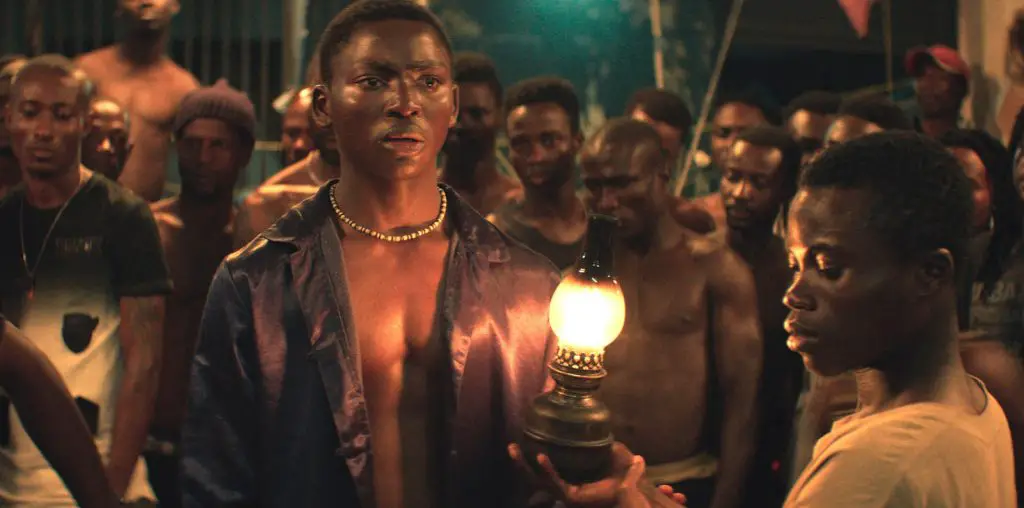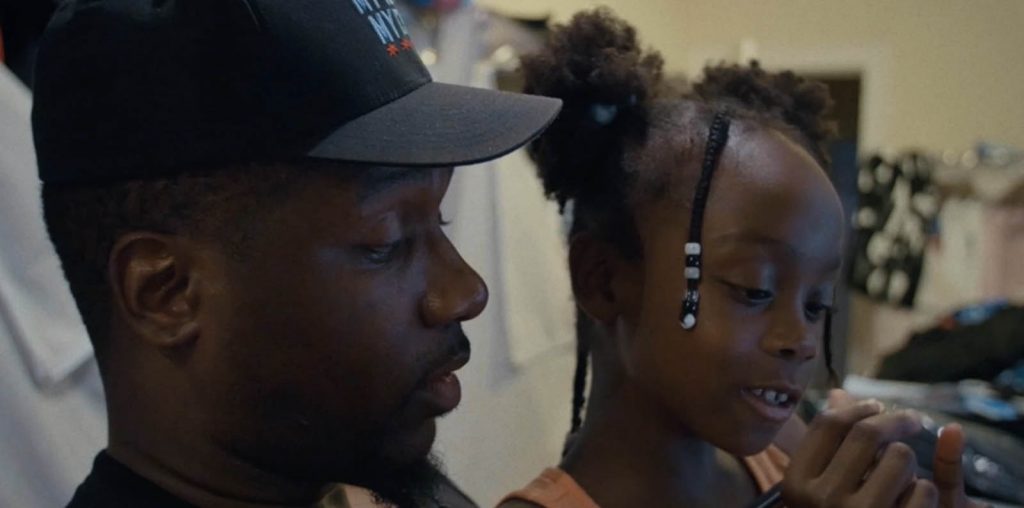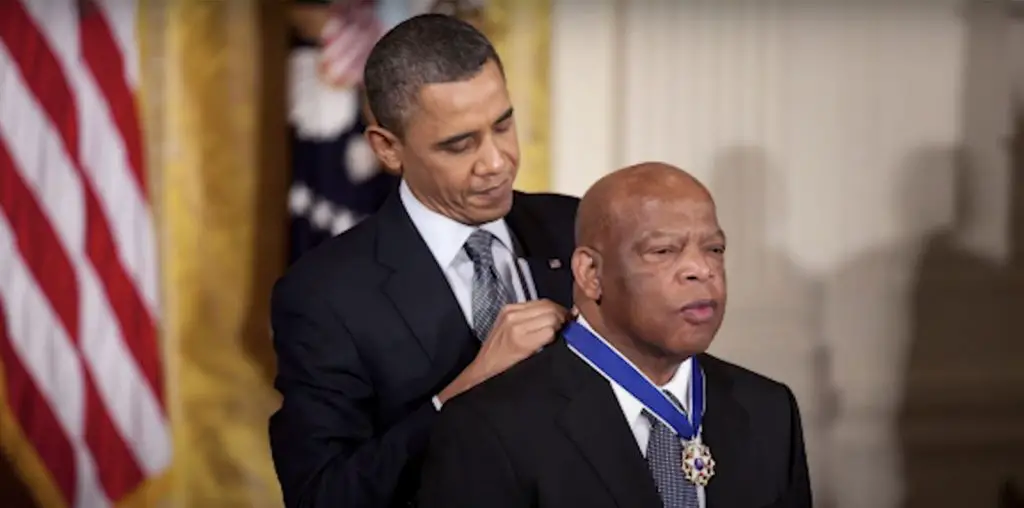
On the surface, the idea of looking for graveyards might seem like a waste of time. But, in the case of abandoned slave burial grounds, it’s less a struggle to preserve cemeteries than it is a fight to save history. Said history has been whitewashed and sanitized, it has had the rough edges smoothed over and made more palatable to a country that doesn’t want to confront a shared sin. What the subjects in the short documentary Unmarked are struggling for, in essence, is the idea that their ancestors deserve the same dignity and respect as everyone else’s. This struggle is tenderly documented by co-directors Chris Haley and Brad J Bennett, from a script by Imani Chach, Christopher Haley, and Austin Journey.
The film presents the viewer with three distinct arguments for the preservation of these graveyards:
1) Leave aside all conversations we’ve had in the United States lately about white privilege or systemic racism and look at these gravesites from a strictly academic perspective. They are not simple pieces of masonry with words chiseled into them, they are historical artifacts. A link to our shared history that can fill the gaps of historical records. These are important sites that need to be preserved in order to help keep our history factual, not anecdotal.
2) Their mere existence so close to historical institutions and monuments furthers the conversation on the complicated history of race in the country. They exist as a stark reminder of how those institutions were built and who built them. Unmarked shows how exploring the real history of these locations doesn’t degenerate them but adds depth and nuance. It’s a fight against the Disneyfication (for lack of a better word) of American history.
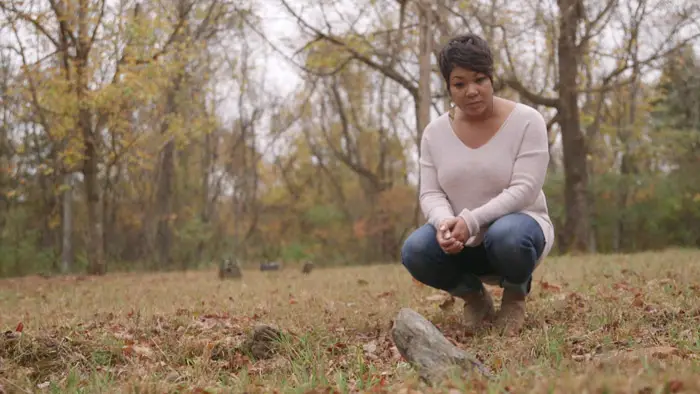
“…a struggle to preserve cemeteries…a fight to save history.”
3) These graveyards are a direct link to American history for many people of color. If not preserved or saved their family histories are in danger of being erased out of a potent combination of neglect and shame.
Haley and Bennett shed light on an important topic that should be talked about. The film seeks to raise awareness of a deep problem with how we, as a country, deal with people of color and the shame of slavery. These are all important points. From a filmmaking perspective, however, Unmarked does suffer from a few problems. The biggest being a lack of focus. This is clearly a subject that the directors and writers are passionate about, which proves to be a problem. They meander from point to point, sometimes reaching dead ends, only to start over. They jump from talking point to talking point, always reaching their eventual conclusion, but with several detours along the way.
Unlike other documentaries, this movie doesn’t focus on one particular subject taking on a problem, but rather the problem itself. And without that center of focus, the information seems to come in unwieldy clumps. But, with its 40-minute runtime, this doesn’t become an unbearable problem, merely a mildly annoying one.
Unmarked discusses an issue most of us didn’t know existed. It is an intriguing if somewhat amateurish documentary that I hope will serve as a first draft to a better and more widely seen version yet to come.
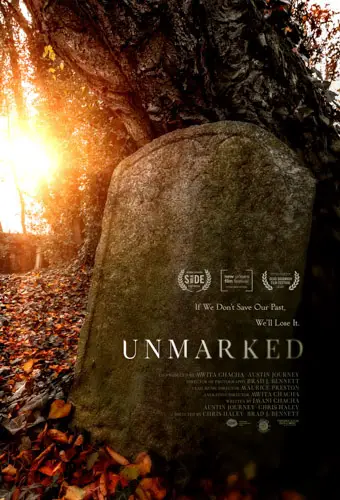
"…clearly a subject that the directors and writers are passionate about..."
